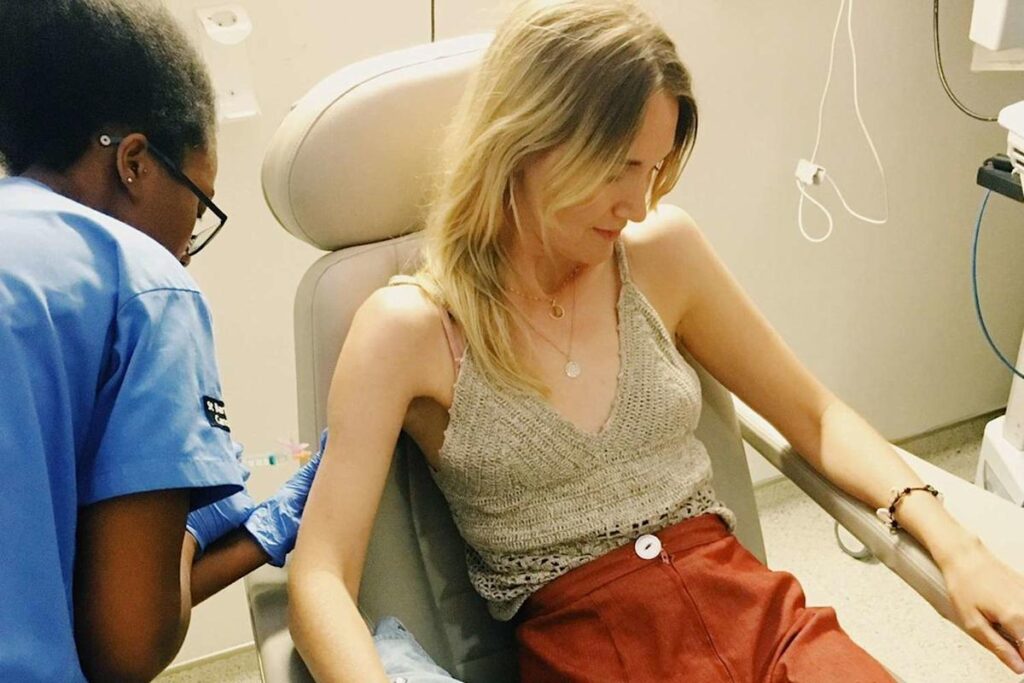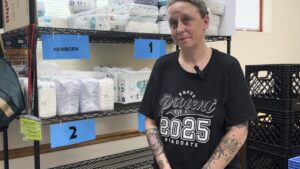
Leah Hughes was just 29 years old when she first discovered a small lump in her breast. Despite her concerns, her doctor dismissed it as a benign change linked to her menstrual cycle, a common occurrence in younger women. Now, nearly a decade later, Hughes is battling stage 4 breast cancer that has spread to her liver, bones, brain, and lungs.
Hughes’ story underscores the critical importance of early detection and the challenges younger women face in getting screened for breast cancer. According to the American Cancer Society, routine screenings typically begin at age 40, leaving many younger women like Hughes without the option for early testing.
The Initial Dismissal and Misdiagnosis
When Hughes first reported the lump to her general practitioner, she was told she “didn’t qualify” for breast cancer testing. Her symptoms were attributed to fibrocystic breast tissue, a condition characterized by non-cancerous lumps often linked to hormonal changes, as noted by the Mayo Clinic.
It wasn’t until three years later, in April 2018, that Hughes noticed a shadow and dimple on her breast while trying on a bikini. This prompted her to contact her doctor again, leading to immediate hospital referrals for a mammogram, ultrasound, and biopsy. These tests confirmed her worst fears: she had breast cancer.
Progression and Treatment
Following the diagnosis, Hughes underwent extensive testing to determine the extent of the cancer’s spread. MRI, PET, and bone scans revealed that the disease had metastasized to her bones and liver. Doctors informed her that the cancer was incurable.
Over the years, Hughes managed the disease through various drug treatments. In 2022, she underwent a single mastectomy followed by chemotherapy. However, by August 2024, further scans showed the cancer had spread to her brain, necessitating whole-brain radiotherapy and additional chemotherapy.
“With stage 4 breast cancer, you know it can spread to the brain and you do worry,” Hughes said. “But I didn’t expect it then, because I had no symptoms at all.”
Challenges and Advocacy
In March, Hughes began experiencing respiratory issues, leading to the discovery that the cancer had spread to her lungs. A procedure was required to remove 4.5 liters of excess fluid that had accumulated.
Currently in her sixth round of chemotherapy, Hughes is also fundraising to afford Enhertu, a drug not widely available for her cancer type and stage. Despite the challenges, she remains resolute in her fight.
“I can’t believe everything I’ve been through. You don’t realize until you sit back and reflect,” she said. “But I have no choice just to get on with it and keep fighting.”
Implications and Awareness
Hughes’ journey is a stark reminder of the need for increased awareness and advocacy for breast cancer screenings in younger women. Her experience highlights the potential consequences of delayed diagnosis and the importance of listening to one’s body.
As medical professionals continue to debate the appropriate age for routine screenings, stories like Hughes’ serve as a call to action for both healthcare providers and patients to prioritize early detection and personalized care.
For those inspired by Hughes’ resilience, her story is a testament to the power of perseverance and the critical need for continued research and support for those battling cancer.





